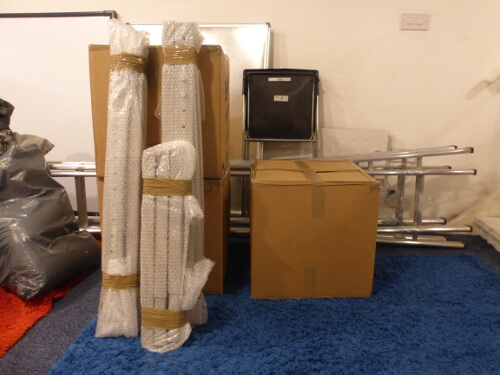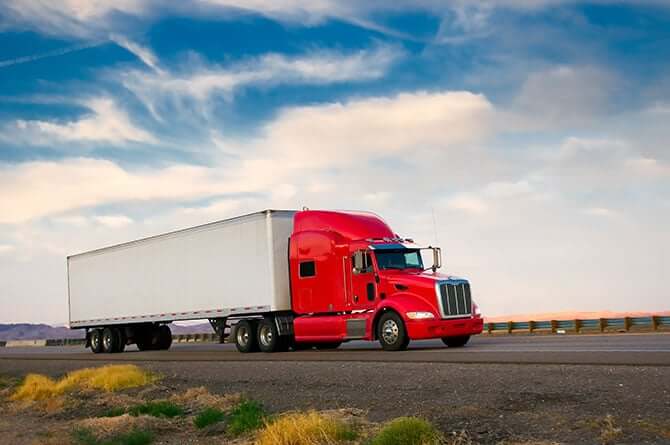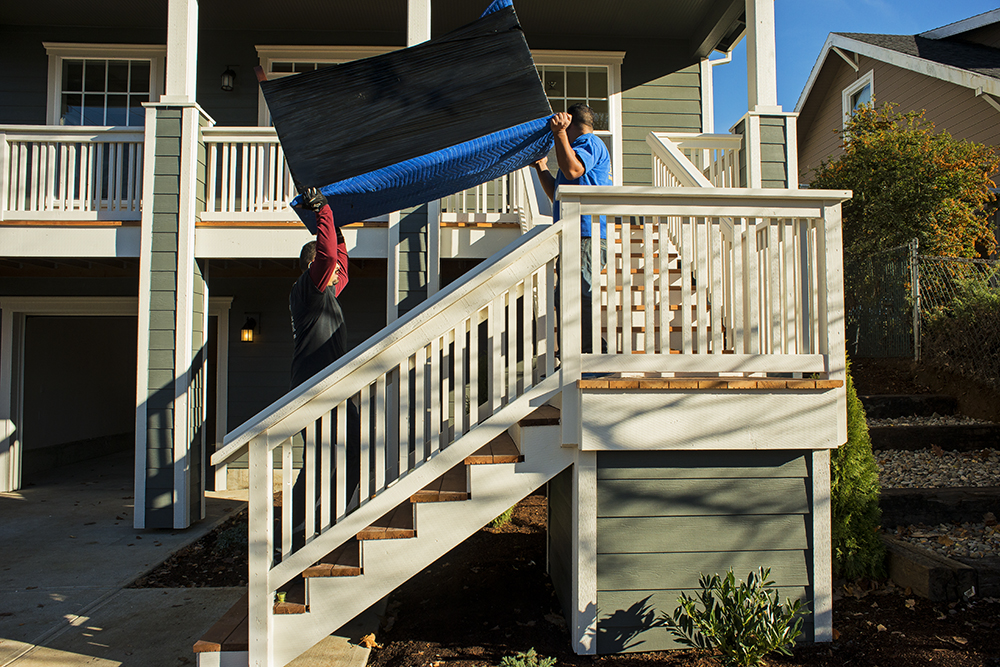Frequently Asked Questions about Long Distance Movers
What should I know about quotes?
When you receive a quote for your move, understand that the first price you receive will rarely be the exact amount of the full price. Remember, these quotes are rough estimates meant to attract your service. Here are a few ways to ensure you get an accurate estimate
Get an in-person quote: The Federal Motor Carrier Safety Administration requires all long-distance movers to offer an in-person quote. If you live within 50 miles of your mover’s local office, they will walk through your home and give you the most accurate quote possible.
Talk with your moving agent: If you do not live close to your movers, talk with the people handling your move. That way, you can communicate more clearly the belongings you need moved and arrive at a more accurate quote.
Binding estimates: When you get a quote, you will often have the option of a binding or nonbinding estimate. In a binding estimate, you will pay the the estimated amount regardless of how much you’re shipping. If the mover underestimates how much you need to move, they cannot charge you extra. Likewise, if they overcharge you (which is the more likely outcome), you’ll need to pay.
Nonbinding estimates: A nonbinding estimate is simply a quote to give you an idea of shipping cost; the actual amount you owe will be agreed upon in a contract. This is the more common type of estimate.
How do I know if my mover is certified?
Before you sign any paperwork or even proceed with a moving quote, check to make sure your company is licensed by the Federal Motor Carrier Safety Administration (FMCSA). FMCSA makes sure the moving company follows safety regulations when they transport your belongings over long distances. If you ask to see your mover’s FMCSA license, and they don’t provide it, look somewhere else
You can check this licensure at the Department of Transportation’s website. Search their database to make sure your movers are safe. Other credits, like safety and reliability ratings from AMSA are also strong indicators of reliability. Essentially, the more certifications from reputable sources a company has, the more likely you are to find a company that puts you first.
Keeping all the above information in mind, we still have some final pieces of advice while you look for your movers. Here are some helpful tips for making your choice:
Be careful with brokers: A broker will find you a good deal, but keep in mind the movers will be from a different company. If you go with a broker, research the moving company they recommend to make sure they are certified.
Get your quotes in writing: Movers are required by law to provide you with a written estimate. If they only offer a rough estimate while promising a more complete bill after the move, you should find someone else.
Double-check certifications: Make sure the mover has an FMSCA license and they’re registered with the Department of Transportation. Check and see if their licenses are current by reading it from their website or asking an employee. An established moving company will have a license that’s at least three years old.
Know their reputation: Check their company history by seeing what others have said about them. Also, check their record with the Better Business Bureau. See if they have a history of complaints.
Don’t sign until you’re sure: Do not let movers pressure you to sign a contract until you’re sure you’re making the right choice. Don’t sign anything that’s incomplete, and keep copies for your personal records.

Long Distance Moving Tips You’ll Ever Need
Moving long distance across the country is viewed as the most challenging type of relocation there is, right after moving to another country (an international move). And to be able to guarantee the success of your upcoming cross-country move, your best option is to have a master plan about what you should be doing each step of the way. And, of course, how you should do it too.
One thing is sure – you’re going to have to be ready for your long-distance move. And this is exactly where good advice will come in very handy. These top long-distance moving tips will guide you throughout the entire house moving process – from the very first moment your move becomes only a matter of time (start point) until the day your household items are delivered to the new home that’s located many, many miles away (end point).
Create a long-distance moving plan ASAP (Moving Checklist)
Moving long distance requires a lot of planning and you shouldn’t waste another day wondering where to start or what you should do next. The solution is simple: you need a plan that works, and you need it right now.
Don’t make the biggest moving mistake
These tips for planning a long-distance move will help you organize a problem-free household move from start to finish. Nevertheless, costly mistakes are never out of the question.
Get in-home moving estimates from reputable movers
In order to prepare a preliminary moving budget, you’ll need to know how much long distance movers cost. Or in your specific house moving case, how much those cross-country movers will charge YOU.

How to Pack for a Long Distance Move
Packing for a long-distance move might be a very tedious task but only if done without any guidance. The whole move requires a lot of time, effort and finances which may be easily minimized if you follow simple guides on how to pack for a long-distance move, just like this one. Don’t forget to also take in mind the best day of the week to move.
General Long-Distance Moving Advice
Plan in advance.
Long-distance moves don’t happen spontaneously, this is a meaningful step in your life that requires planned decisions and attention to detail. Everything related to packing, insurance, safety, speed, delivery destination and affordability should be taken into consideration in advance.
Deal with regulations.
Each country and state has specific regulations for people moving into it. Check what you have to comply with if you move personal belongings from another country into. If you break any of the rules, your belongings or the vehicle that transports them may be seized (If you are moving to the US look for full container load services. Your effects are packed at your home and loaded directly onto a more than 20ft container and transported directly to the docks to await the next scheduled sailing.
Research the moving company.
Not all service providers are loyal. Some will trick you into booking service and will offer a low-quality experience you’ll never forget. Always read previous customers’ reviews that are legitimate and check local forums for people who have shared more information. Moving with an unauthorized company may also lead to ending up as a victim of a fraud.
Calculate your expenses.
It’s always good to have a general idea of the approximate price for the move but don’t expect it to be 100% accurate. Upon booking the service, there are plenty of things that may impact the final price, so always be prepared for surprises. Generally, most long-distance moves cost more because of the higher expenses and working hours of that are needed for the completion of the job. And don’t forget to cancel your council tax when you move.
Make a moving checklist.
Fortunately, we have already prepared a moving checklist for our readers. Instead of wasting time on making one for you, see what our moving house checklist includes.
Leave lightweight items where they were.
If something is not going to be disassembled, you don’t have to remove what’s contained inside of it – this will cost you time and effort.
Separate important papers and documents from the rest of the luggage.
You may need to pull out your ID, driving license or other documents at any time, carry these in a purse or a backpack so they are easily accessible.

Pros and Cons of Your Long Distance Moving Options
Long distance moves can be one of the most challenging things you might ever undertake. There are many choices to make in deciding the best way to move your household state to state, including full service moving with long distance moving companies, and various do-it-yourself moving options. Here is your pro and con list regarding the various interstate moving options.
Move using only your own vehicle.
Pros:
You can save money by driving your own car yourself. All you need are gas, caffeine, and pit stops.
Cons:
You have to pack up your items and your car yourself.
You have a finite amount of space; so, you can only take a smaller amount of items and may have to leave a lot of things behind that will need to be replaced at your new location.
This strategy may work for people without furniture or college students moving out of dorms, but most people will have difficulty fitting all their belongings in their personal vehicle..
Depending on the length of the move, you may have the expense of staying overnight in a motel(s), if moving across the country.
It is recommended that you pay to get a checkup for your car to avoid problems, such as breaking down in an unfamiliar place while driving state to state.
Rent a trailer.
Pros:
Renting a trailer allows you to take more of your things with you than a personal vehicle. If you have a small amount of furnishings and want to do it yourself, this could be a good option.
You may save money vs. other options.
Cons:
You need to clean, declutter, and pack, load, and unload yourself.
In order to pull a trailer you will need a trailer hitch that is connected to the wiring of your car for safety signals, which may be an added expense.
Depending on the size of the trailer, you may need a larger SUV or truck with towing capability.
You may be unfamiliar with driving a trailer and have some unease maneuvering, parking, backing up, etc.
Your gas mileage will take a hit when pulling a trailer; requiring more frequent stops to fill up.
Motel stays on interstate moves; and more difficulties parking a long trailer.
There may be toll charges state to state.
Most truck rental companies charge extra fees for mileage.
You may be required to pay insurance fees for the trailer.
Moving one way will require a drop-off fee.
Typically, you have one day to unload or incur late fees.
You have to clean, unload, and set up your new place by yourself after a long drive.
You may need to obtain permits and endure other logistical hassles at your old or new location to keep the trailer in a convenient location for loading and unloading.
You may also need to clean the trailer before returning or incur an additional fee.
LONG DISTANCE MOVING
Movers is a fully licensed and insured interstate moving company. Movers can move you, within your state or across state lines
How it Works
can provide you with a general cost estimate over the phone that covers all of your interstate moving needs: movers, trucks, fuel, moving pads and equipment, loading, driving to your new city and unloading. Everything is included
Movers will arrive at your home at the agreed upon date and time. will protect your floors, door jambs and walls, complete any packing that agreed to do, disassemble items as required and perform an itemized inventory of the things are moving out of town. Once things are ready to move, will load the truck. When the truck is loaded, the driver will verify your new address, collect any last-minute instructions and confirm the date and time for your interstate delivery. will see you at your new home and you can travel leisurely without the hassle or worry of loading or driving your own truck.
Licensed for Long-Distance & Interstate Moves
Your movers should be listed as ‘Authorized for HHG’. We operate under USDOT 2294507, Interstate Moving Company Authority MC-783481. Just having a DOT number is not enough.
Check to see if your mover is licensed to do Interstate moves »
View the OCP-100 Rights and Responsibilities When You Move »
View a sample of the American Moving and Storage Association Arbitration Program »
Check to see if your mover is licensed to do moves within Virginia » (NOTE: You will find us under “Home Town Services LLC”.)